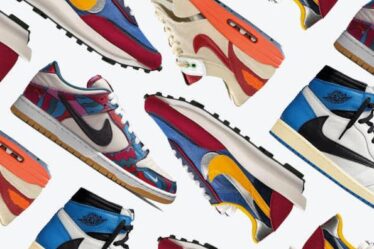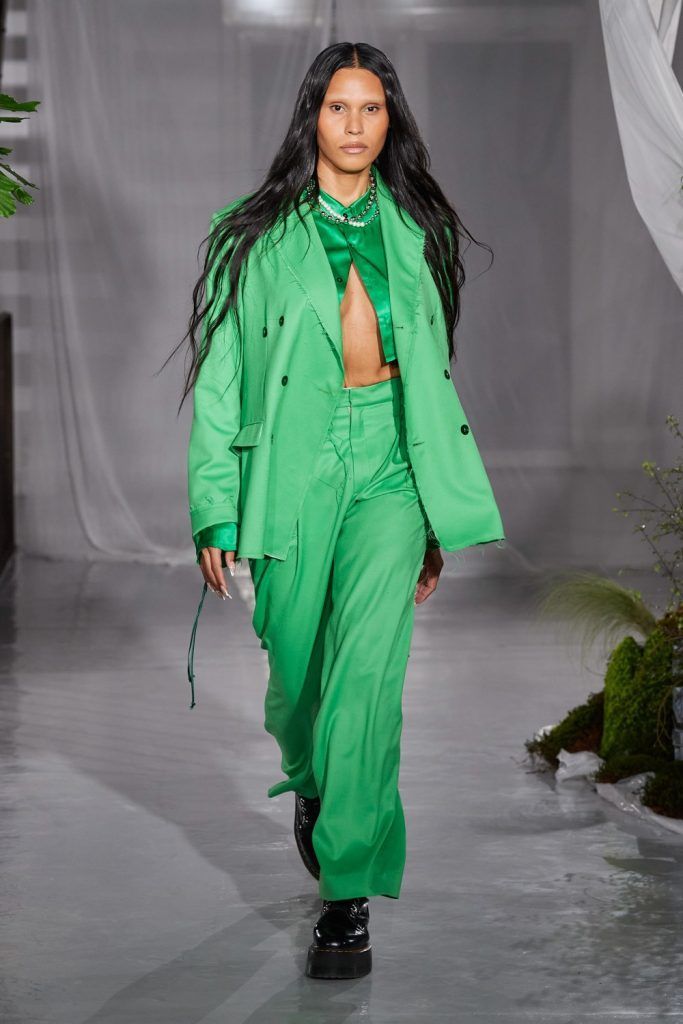
They’re young. They’re sustainable. They’ve lived through a pandemic and came out the other side kicking, screaming and, a round of applause please, assiduously succeeding. These are the cool new sustainable fashion brands to know.
Alter
In 2018, Pauline Ducruet of the Monegasque princely clan established Alter, a “non-binary brand” (according to Ducruet) built upon the ideals of diversity and inclusion, transparency and, of course, sustainability. A flip through Alter’s look books shows how Ducruet has employed the late Princess Grace’s sensibilities in a contemporary context: Her Serene Highness’s love for crisp button-down blouses is especially prominent in Alter’s style canons, though the latter adopts parakeet-green or, occasionally, golden- orange colours. Ducruet’s first collection introduced the Signature Jeans Jacket, made from three upcycled vintage denim pieces. Her latest collection expresses the ethos of sustainability rather loudly and – dare we say – glaringly, with its green-and-beige colours and a mise-en-scene of plants and bushes wrapped in tarps. The clothes follow suit with pesticide-free silk and cotton as the primary materials alongside deadstock denim and leather for selected pieces.
Botter
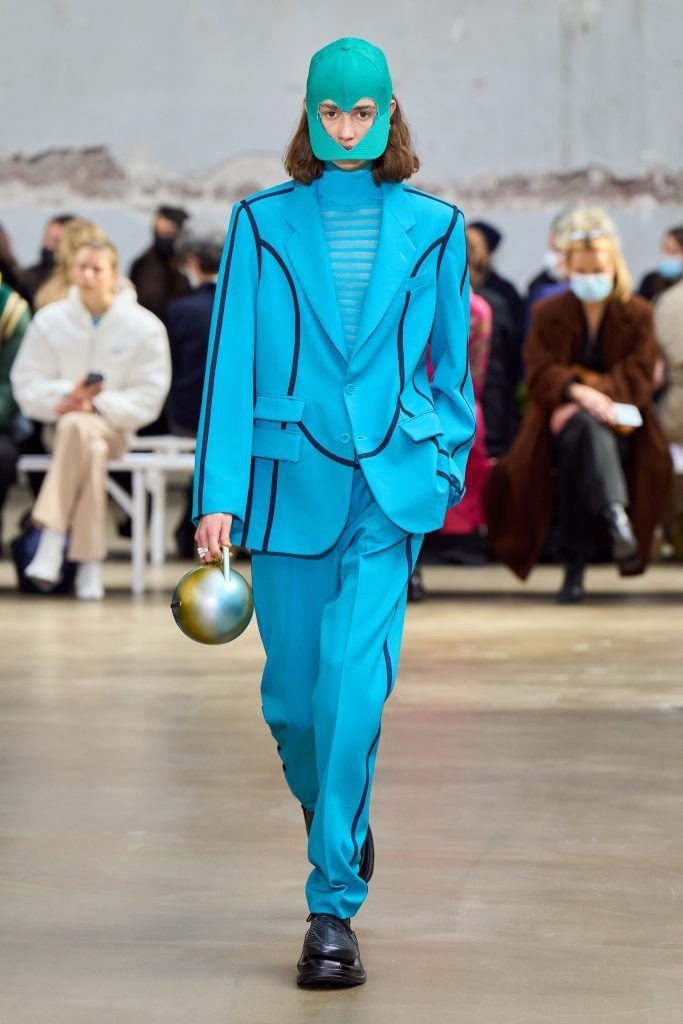
The Caribbean Couture brand founded by Lisi Herrebrugh and Rushemy Botter has been on the radars of fashion protagonists the world over after being honoured with the Grand Prix award at the Festival d’Hyères (the creative duo were subsequently appointed as creative directors of Nina Ricci). In 2020, the brand opened the Botter Coral Nursery in Curaçao to fight against the bleaching of reefs, which is often caused by pollution. Botter aims to ensure that 80 percent of its collections are made from ocean plastic waste, with the remaining 20 percent from organic, biodegradable materials such as wool and cotton. The label’s growing influence on streetwear and men’s tailoring offers a platform for its eco-activism, promoting both innovation and environmental initiatives suchg as Coral Nursery, to which Botter donates regularly.
Hodakova
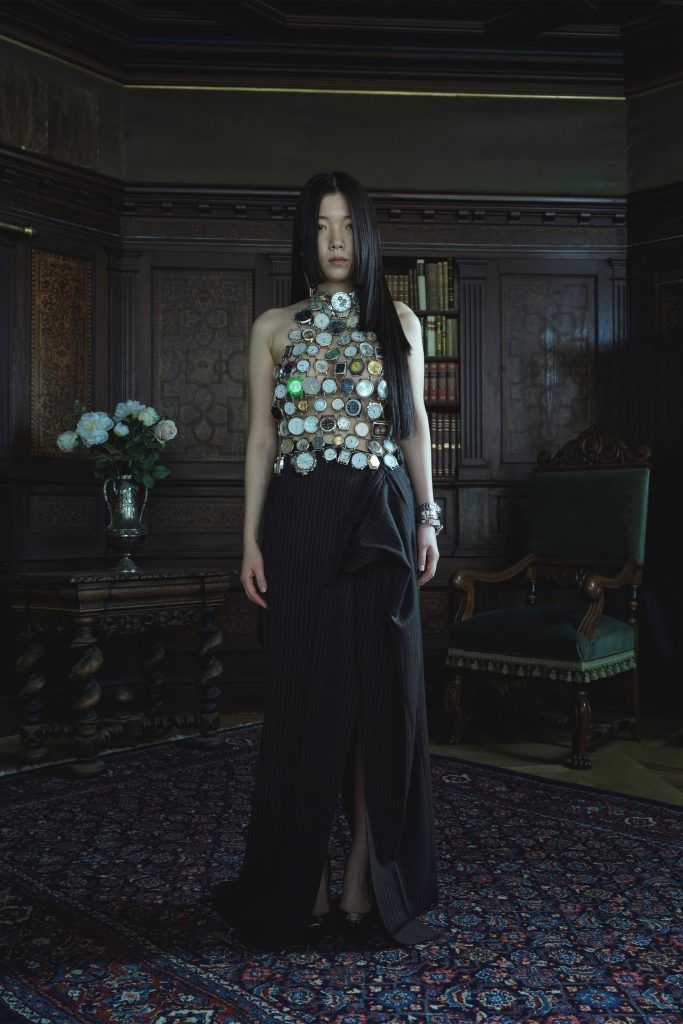
Upcycling acquires a new context under the skilled hand and creative ingenuity of Ellen Hodakova Larsson, founder of the label Hodakova. The enigmatic designer made her debut at last spring’s Paris fashion week, when her dresses made from leather gloves and belts shifted the perception of raw and literal upcycling into a context more elevated and glamorous – an achievement similar to that of Marine Serre’s in 2018, if more provocative and assertive. The limpidity in her aesthetic language is bewildering and then becomes spellbinding and addictive. For her autumn 2022 collection, Hodakova showed something seasoned designers may have dreamed of making but hadn’t quite succeed (except for Christian Cowan in 2018) – a dress made entirely out of the faces of discarded watches. Watches that were no longer functioning – quite literally timeless. As some commentators noted, the beauty of her work lies in its inherent materiality. There are no obscure ideals of sustainability conveyed through terms such as “artisan made”, nor rustic earth-toned visuals hinting at ecological consciousness. She literally puts the vintage jackets on the floor of her studio and cuts the unwanted parts away – the directness of her concepts is enforced by the mastery of craft and polished with blasé attitude.
Yousef Akbar
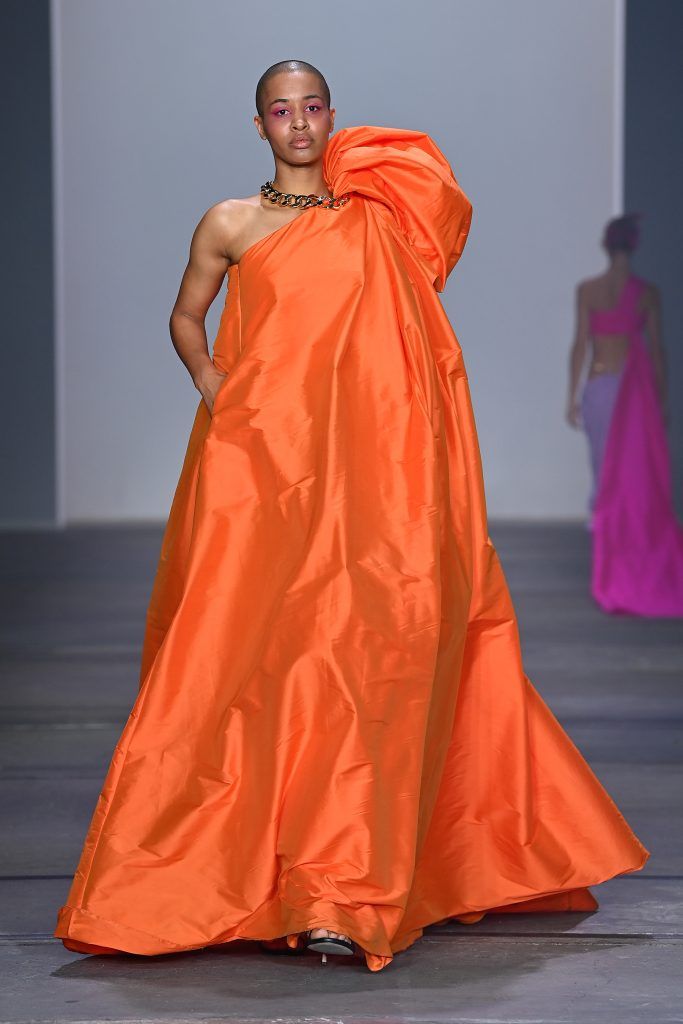
Saudi Arabian designer Yousef Akbar asks a question: what would happen if the Dune universe didn’t have a vendetta against the concept of glamour? Akbar’s gowns go beyond the simple use of deadstock fabrics; instead, they’re cut and constructed in a way that minimises (and, in some cases, eliminates) cutaways, while the metal elements integral to his aesthetic are either upcycled or reclaimed. The young designer’s ethos lies in creating an ecosystem of artisans and suppliers that ensures all his garments are made locally, and that the workers earn livable wages. As a demi-couture label with on-demand design services available, Akbar keeps his stock minimal. As a young brand, it hasn’t yet achieved full transparency in its supply chain, but promises to disclose the origins of any garment to each client. Meanwhile, the label regularly collaborates with charities and engages small communities and family businesses in the Middle East to promote young talent in the region.

